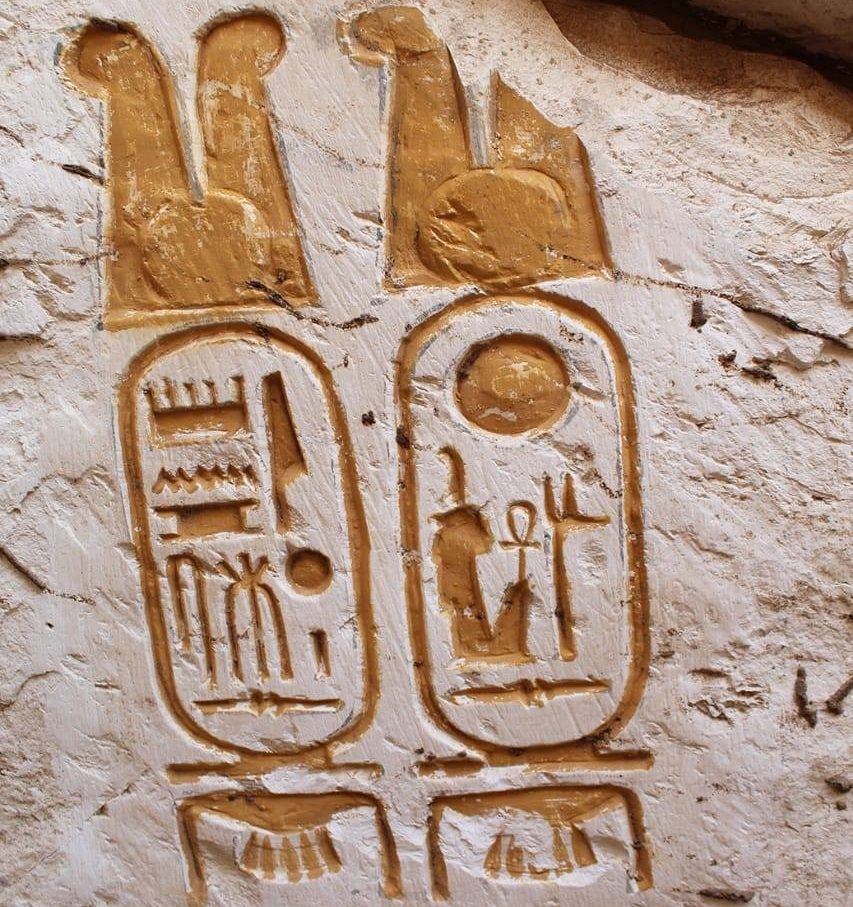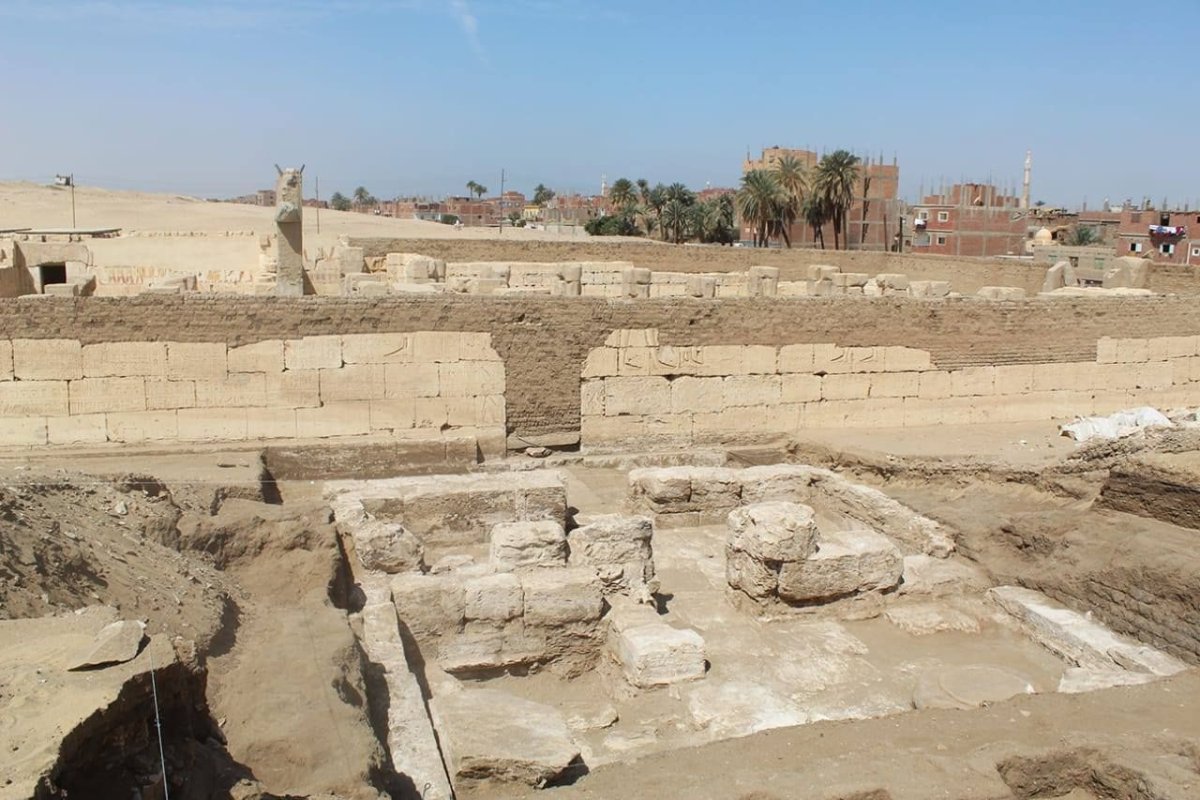
New York archaeologists have discovered an ancient Egyptian palace at the site of a royal temple, Egypt's Ministry of Antiquities announced Thursday.
The structure adjoins the Temple of Ramesses II at the ancient site of Abydos, an important city also home to the tombs of several early kings.
Archaeologists uncovered evidence of the structure during excavations of the temple and the surrounding area. Researcher Sameh Iskander with the New York University mission said the team found a stone walkway at the southwest entrance to the temple. This led them to the entrance of another building adorned with the cartouche—a hieroglyphic marking that denotes royalty—of Ramesses II.
Researchers also excavated the temple's cornerstones, which were decorated with similar royal symbols. These etchings, and the newly discovered structure itself, will contribute to archaeologists' understanding of temples of this period, the ministry reported. Mustafa Waziri, who heads Egypt's Supreme Council of Antiquities, said the evidence will change researchers' floorplan of the temple for the first time in roughly 160 years.
Professor Joann Fletcher of the University of York told Newsweek the find is not without precedent. King Ramesses III's Luxor funerary temple is accompanied by a royal palace, explained the Egyptologist, who was not involved in the research.
Ruins of the ancient city of Abydos lie roughly 300 miles south of Cairo, in low desert to the west of the Nile. The site is home to a royal necropolis where pharaohs from the earliest dynasties—such as Qaa from the first dynasty and Peribsen from the second—are thought to have been entombed, University College London (UCL) reports.
Abydos was home to several temples dedicated to figures including the god Osiris and the Pharaoh Seti I. During Egypt's Middle Kingdom (roughly 2025 B.C. to 1700 B.C.) the city became the main worship center for the cult of Osiris. According to UCL, worshippers set up numerous small chapels in the city, which also housed a large cemetery.
"The new discovery will certainly emphasize the way Ramesses II, like his father Seti, saw Abydos as the origin of royal power," Fletcher said. The royal's predecessors, buried some 2,000 years before, were still being venerated at the site, she explained. "The fact Ramses II required a palace at Abydos also reveals that he didn't just order a new temple at the site but was spending enough time there to warrant such accommodation," she said.
The find "begins to balance out Abydos' role as purely a cemetery and temple site," she added. "To have a building in which people lived their lives is always a fascinating thing to find."
Ramesses II, also known as Ramesses the Great and Ozymandias in Greek, is thought to have ruled from 1279 B.C. to 1213 B.C. Considered one of ancient Egypt's most important rulers, he led several successful military campaigns to secure territory in parts of the Levant. He constructed large temples like the Ramesseum complex, and left cartouches on numerous existing monuments.
Egypt has been keen to share news of recent archaeological discoveries in an effort to entice visitors back to the country in the wake of the Egyptian Revolution of 2011 and subsequent political unrest.
Recent announcements have included the discovery of the ancient remains of a teenage girl, a number of ornately decorated sarcophagi and a mammoth haul of some 800 tombs at a grave site near Lisht to the south of Cairo.
This article has been updated with comment from Professor Joann Fletcher of the University of York, in the U.K.

Uncommon Knowledge
Newsweek is committed to challenging conventional wisdom and finding connections in the search for common ground.
Newsweek is committed to challenging conventional wisdom and finding connections in the search for common ground.
About the writer
Katherine Hignett is a reporter based in London. She currently covers current affairs, health and science. Prior to joining Newsweek ... Read more
To read how Newsweek uses AI as a newsroom tool, Click here.








